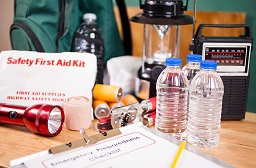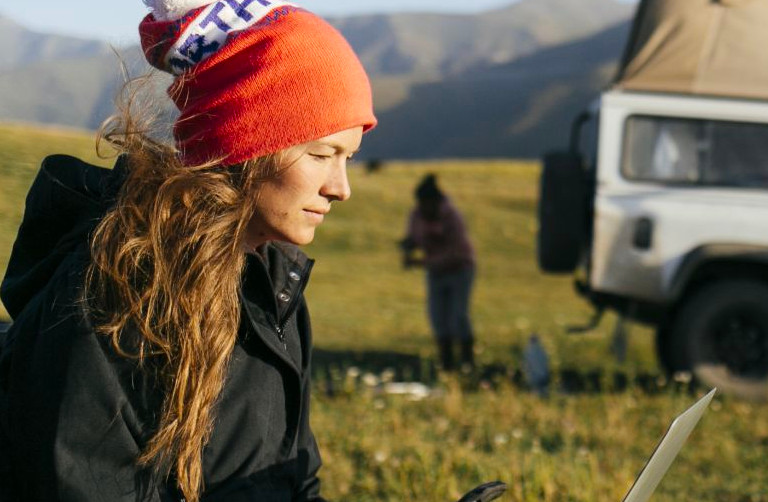6 Travel Tips for Digital Nomads
Working remotely is more popular – and possible – than ever. Digital nomad Lola shares her advice on making local connections, finding a work space, maximizing your productivity, and more.
 Photo © Getty Images / Tom Werner
Photo © Getty Images / Tom Werner
As remote work increases in availability and popularity, more people are doing their jobs from the road. The digital nomad work culture is thriving, and the destinations that can support remote workers are increasing to meet the demand for nomad-friendly cities around the globe. Most digital nomads can do their jobs from anywhere they have reliable WiFi, logging in from their laptops to location-independent roles or juggling various gigs as a freelancer. I’ve been traveling and working as a journalist roaming the planet for the past six years. Here are six of my best travel tips for digital nomads.
- Research your destination and accommodation
- Buy a travel insurance plan
- Join local communities
- Find a good coworking space
- Maintain a work/life balance
- Utilize the latest technology
Research your destination and accommodation
The more time and effort you put into your travel plan, the more prepared for success you’ll be. Be sure to check the length of the visa available to you, the weather during the season you’ll be traveling, and to get an idea of which neighborhoods may suit your needs. Do you want to be within walking distance to coworking offices, cafes, grocery stores, and a gym? Look on Google Maps and mark all of the places you’d frequent in a location, then check the distance between those spots and the accommodation you're considering.
Research to ensure the destination you’ve selected has accommodation within your budget that will meet your needs. I typically search for places to stay on Airbnb or Facebook Marketplace before I arrive and then stay in a hotel for the first week in a new place while I view the listings in person before signing a rental contract. Always test the WiFi speed.
Buy a travel insurance plan
Never travel without insurance. Being a burden on the local healthcare system, especially during a global pandemic, is downright neo-colonial. You may be in perfect health, but accidents happen. When I broke my foot in Vietnam, I was able to get the care I needed including a cast, crutches, and physical therapy thanks to my travel insurance plan.
Join local communities
Facebook groups and Whatsapp chats are a goldmine of information. I join groups for nomads in the new destination as well as local events, vegan, and yoga groups. I’ve made a community by posting in these groups to introduce myself or ask questions before I arrive. Facebook groups are full of location experts – at least one person in the group will likely be happy to respond to your inquiries. Posting in these groups can be the best way to learn about the best coworking offices, laptop-friendly cafes, and meetups. Once I’m at the destination, I connect in person with like-minded people I met virtually through the groups.
Being nomadic can be lonely and making friends is crucial to your success as a digital nomad. I’ve found the most efficient way for me to be nomadic is to stay in one destination for as long as my visa allows (usually one to six months). Other nomads move frequently and only spend a week or so in a destination. This can make it challenging to form or become part of a community if you’re based in a destination where people tend to pass through quickly. If fleeting friendships exhaust you, hone in on cultivating relationships with locals and long-term expats.
Find a good coworking space
Finding a suitable workspace in a new-to-you destination can be a challenge. Utilize Facebook groups to ask for suggestions or search the options on Coworker.com. Ask if you can buy a day pass before you commit to a coworking space to make sure it suits your needs. If you take many calls throughout the day, pay attention to whether or not people are working in silence. If they are, check to see if there are private meeting rooms you could access should you have a meeting.
If you prefer to work from cafes, always ask first if it’s okay to spend a few hours on your laptop while you eat and drink. Be mindful of the size of the cafe. If there are less than 10 tables it probably isn’t appropriate for you to sit there all day and work after buying only one meal.

Maintain a work/life balance
Whether you’re working remotely full-time or occasionally, you probably chose to become a digital nomad for the freedom. Don’t forget to enjoy where you are! If you’ve a set 9-5 schedule, make a decision to shut your laptop and discover different restaurants during lunch and attend events or workout classes in the evening to socialize. If you're a freelancer and your schedule is flexible, don’t feel guilty if you take a day away from your computer to go on an adventure to a waterfall, winery, or whatever you please. Taking breaks when you need them maximizes productivity and creativity.
If you can set your own hours, work according to your energy levels. If you’re a morning person, work on the more challenging aspects of your job when you're feeling fresh and leave tedious housekeeping tasks to the afternoon when you may have less focus. If you’re not a morning person, sleep in and schedule meetings for the afternoon. In my first few years as a nomad, I only worked at night so that I could spend days enjoying my destination.
Utilize the latest technology
During the pandemic, many offices went remote, which benefits digital nomads as there are more apps than ever to help keep us organized. Trello is excellent for project management, Calendly is great for scheduling client calls, and Zoom continues to be the favorite platform for video meetings.
Many new digital nomads make the rookie mistake of staying on their cell phone plan from home – although many offer service internationally, US-based phone plans are significantly more expensive than pay-as-you-go SIM cards overseas. Make sure your phone is unlocked so you can buy a new SIM card in each country you visit. Ask in local Facebook communities which SIM card has the best service, can be used as a hotspot, and has the most reasonable prices.
If you’re planning to be someone who doesn’t work from a home base, be prepared to lug along your laptop during your workday to cafes or coworking spaces. Don’t skimp on buying a sturdy backpack that supports both the laptop and your body. If you’re working in a tropical destination, get an anti-humidity laptop case and a laptop stand with a fan to keep your computer cool.


1 Comment
Part of the research needs to include understanding how long you can stay in a country place without incurring a tax liability.
Deloitte have a site that is a good place to start.
https://dits.deloitte.com/#TaxGuides
Some countries, Croatia is an example, offer visas for digital Nomads.
Fully agree with the comment about local SIMs vs. roaming on your home country SIM.
There are also options like GoogleFi & Lycamobile.